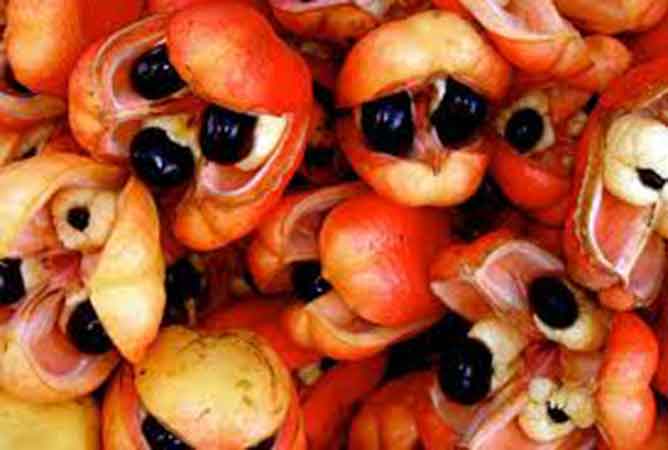The ‘Poison’ that Jamaica Loves and Africa Fears
Ackee and saltfish is Jamaica’s national dish and a breakfast staple.
The Ackee fruit is an African native crop introduced to the Caribbean by British slave traders.
Its name is derived from the West African Akye fufo.
It is not popularly eaten in Africa.
Immature fruits are used to make soap; the wood from the tree is termite resistant and used for building; extracts from the poisonous seeds treat parasites and are sometimes used as a fish poison.
Topical ointment made from crushed ackee leaves is applied to the skin to treat headaches and ulcers. And the ackee leaves are also good as a fodder for goats.
Ackee is very nutritious, high in fatty acids and rich in protein, potassium, iron, and Vitamin C.
The fruit grows in red pods and is not entirely edible.
Only the yellow arils—a fleshy appendage to each of the three large black seeds in the pod—can be eaten.
In tropical West Africa, increased awareness of the safe preparation and nutritive value of the ackee arils could support food security and rural incomes.
After centuries abroad, the ackee crop could once again flourish in its native grounds!

By Neo Makeba
Download The Jamaican Blogs™ App for your Android device: HERE
Remember to share this article on Facebook and other Social Media Platforms. To submit your own articles or to advertise with us please send us an EMAIL at: [email protected]


Very inormative Article
Very inormative Article
Very inormative Article